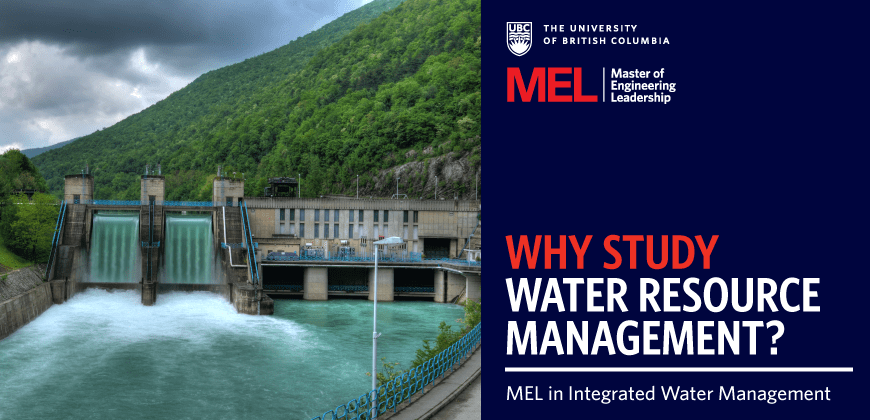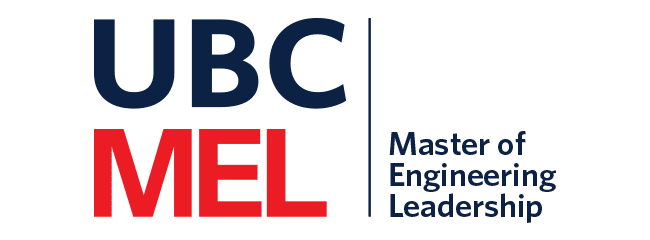Why Study Water Resource Management?

The need for water resource managers is acute. Without water, there is simply no life on earth. We need water to survive, to produce electricity, to grow crops, to manufacture products and ensure healthy ecosystems.
Yet according to the World Resources Institute, roughly half the earth’s population is currently living in areas of extremely high water stress and global demand for water is expected to grow 20%-25% by 2050.
They state: “Without better water management, population growth, economic development and climate change are poised to worsen water stress.”
Professionals with expertise in water resource management, water treatment and wastewater management are required across all industry sectors to meet these challenges and ensure water resources are available when and where they are needed.
Technical expertise is not enough. Given that water intersects with virtually every area of human activity, we need forward-thinking innovators who have the skills to manage complex projects, integrate knowledge from different areas, communicate with a wide range of stakeholders and influence policy-makers and decision-makers.
“The clear need for water management professionals with broad multidisciplinary technical skills was one of the driving forces behind the creation of the Master of Engineering Leadership in Integrated Water Management program,” explains former Program Director Barbara Lence.
She says that her industry colleagues in the private and public sector are looking for individuals with technical expertise who “understand economic and financial considerations in water management, and who are also able to consider the environmental and social equity aspects of water projects, including the ability to collaborate with Indigenous partners and communities.”
A curriculum focused on water resources
The MEL in Integrated Water Management offers an interdisciplinary curriculum that covers the supply chain of water quality and delivery. Students gain a solid grounding in topics on source water and hydrology; water quality, use, distribution and treatment; waste stream management; and drainage.
Courses are taught by world-renowned experts in their field from UBC’s Faculty of Applied Science
Students also complete a capstone project where they work closely with an industry partner to develop an innovative solution to a complex technical and business challenge. The course is currently taught by Dr. Cheryl Nelms, general manager of project delivery at Metro Vancouver who oversees a multi-billion-dollar portfolio for the region’s water infrastructure.
“This course addresses the technical realities of managing major water infrastructure projects, but we also focus on other critical aspects that are sometimes overlooked in professional training,” says Nelms. “This includes the environmental management of a project, permitting, regulatory requirements and First Nations involvement. We also dive into other issues that arise in project management relating to soft skills – communication, engagement, human resources, co-ordinating roles and managing the different interests of diverse stakeholders.”
Students complete a series of case studies and then work with an industry partner on a specific project. In 2022, one student group reviewed scope management practices for a $2-billion investment to upgrade a wastewater treatment plant in Langley, BC.
Preparing students to be leaders in water resource management
Being a leader in water treatment and management requires more than technical knowledge. It requires a familiarity and ease with business, organizational leadership, strategy, innovation, analytics, accounting, project management and more.
Integrated Water Management students gain this broad-ranging business knowledge through courses taught by UBC Sauder’s Robert H. Lee Graduate School, one of the world’s top-ranked graduate business schools. In these courses, students explore case studies, engage in lively conversation and work together in interdisciplinary groups. An intense three-week course in the summer delves into six core business competencies, including accounting, organizational behaviour, finance, marketing, business technology management and professional development.
Advancing into leadership positions in the water industry
Graduates of the MEL in Integrated Water Management are in high demand in industry and in the public and not-for-profit sectors.
“Our 2022 cohort were all quickly hired into management positions, and several of the 2023 cohort had job offers in place only halfway through the year,” says Lence. “Our alumni are leading teams and projects in industry, consulting and in all levels of government.”
After completing the program at the end of 2021, Rafael Tozzi began working for the City of Vancouver as a project manager for the city’s groundwater strategy plan. He was then hired by a consulting firm that is working on a planned megacity in Saudi Arabia, responsible for guiding a team of 14 technical leads.
“In line with the project’s sustainability pillar, one of the objectives is zero liquid discharge,” he says. “That’s an intriguing technical issue that may require developing new technologies. For me personally, this is also an incredible opportunity to work on an ambitious project and lead a team of people from around the world.”
Start your future as a water resource leader
The MEL in Integrated Water Management was designed for professionals who want to make a difference in the world by deepening both their technical and business knowledge. “The name of our program – Integrated Water Management – speaks to our focus and curriculum design,” says Dr. Lence. “We emphasize the importance of integrating knowledge of climate change, adaption strategies, good design, project management and implementation.”
That integrated perspective is more important than ever. And graduates of the program – with their interdisciplinary viewpoints – will be at the forefront of addressing the challenges of water supply, management, treatment, distribution and regulation to ensure quality of life and health.
Integrated Water Management
Featured Faculty and Staff

DR. BARBARA LENCE
Application Deadlines
Get ready to apply!
Admissions for the 2026 intake will open on January 1, 2025.
How to ApplyJoin us for an
Info Session
Sign up for our latest online information sessions and discover what our programs have to offer.
Sign Up NowIntegrated Water Management
Featured Alumni

Alice Kruchten
With five years of industry experience, Alice Kruchten was ready to enhance her technical and leadership skills and take on more complex projects in her environmental consulting work.


